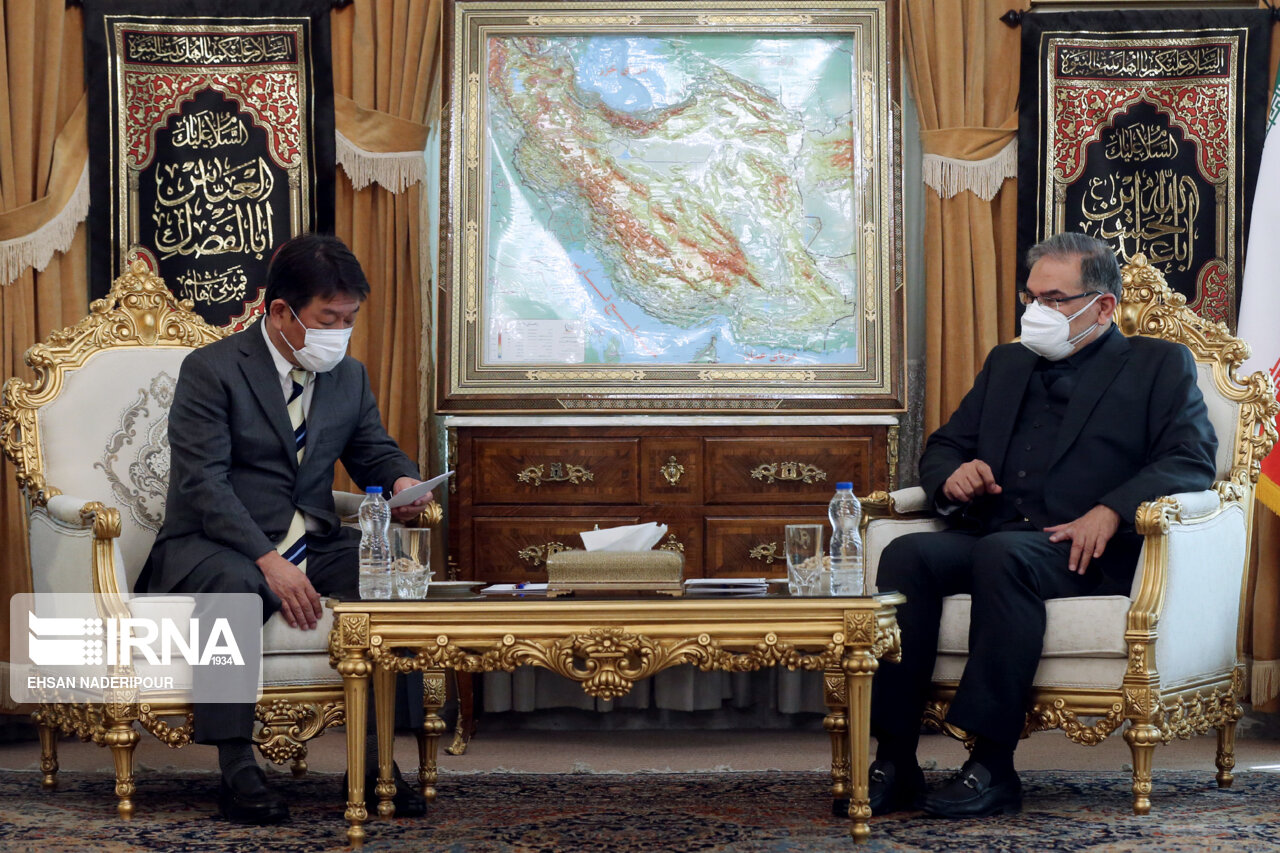
The secretary of Iran’s Supreme National Security Council (SNSC) says continuation of US policies, which pursue no other goal but to foment tension among countries, will have dangerous consequences for the entire world, in general, and West Asia, in particular.
Ali Shamkhani made the remarks in a Sunday meeting with the visiting Foreign Minister of Japan Toshimitsu Motegi in Tehran.
Noting that recent “integration of the fake Zionist regime in the CENTCOM mechanism” by the United States proves that Washington is bent on going on with its destabilizing policies, the Iranian official said, “Continuation of these policies will have extremely dangerous consequences for the security and stability of the region and the entire world.”
On January 15, the Pentagon reported a change in the Unified Command Plan shifting Israel from US European Command (EUCOM) to US Central Command (CENTCOM). In announcing the new areas of responsibility, the Defense Department pointed to the normalization deals between Israel and a number of Arab states, which drew condemnation from both Islamic countries and the rest of the world, as “a strategic opportunity... to align key US partners against shared threats in the Middle East.”
That same day, the Wall Street Journal characterized the decision as former US President Donald Trump’s last-minute bid to shape the regional agenda for the administration of President Joe Biden and spur Arab-Israeli cooperation against Iran.
Elsewhere in his remarks, the top Iranian security official elaborated on the country’s stance on the 2015 nuclear deal between Iran and world powers, known as the Joint Comprehensive Plan of Action (JCPOA), saying that the US' violation of its obligations, its irresponsible withdrawal from the agreement and the continuation of Trump's policies by the Biden administration are the main reasons behind the ongoing crisis surrounding the deal.
“The best way out of the impasse created by the US is to respect the inalienable rights of the Iranian people,” Iran's security chief stressed.
The JCPOA was reached between Iran and six world powers, including the United States, Britain, France, Germany, Russia and China, in 2015. However, the deal was ditched by Trump in 2018 in spite of Iran’s full compliance.
Since April, the remaining signatories to the JCPOA have been holding face-to-face talks in the Austrian capital aimed at bringing the US back to compliance and putting the deal back on track.
So far, six rounds of negotiations have been held in Vienna, as a result of which, according to participants, “significant progress” has been made in the course of the “constructive” and “businesslike” talks.
However, disagreements have persisted over a number of issues, including how to sequence the US sanctions removal, with Tehran arguing that since Washington was the party that violated the terms of the agreement, it should take the first step back into compliance with the deal by removing its unilateral sanctions.
Shamkhani also emphasized that ensuring the security of international waterways is among Iran’s main strategies, adding that the presence of foreign forces in the Persian Gulf disrupts stability and endurable security in the region.
Shamkhani further pointed to deep-rooted relations between Iran and Japan and stressed the importance of improving mutual ties without interference and influence from third parties.
The Japanese foreign minister, for his part, said his country is interested in the expansion of ties with Tehran, expressing hope that the two countries would further improve relations under the new Iranian administration.
Motegi highlighted the significance of the JCPOA as an international agreement and said the United States must stop its excessive demands to revive the deal.
The Japanese foreign minister is in Tehran for talks with Iranian officials, on the first leg of a tour taking him through the West Asia region.
Earlier in the day, he held talks with President Ebrahim Raeisi and his Iranian counterpart Mohammad Javad Zarif.
In Motegi’s meeting with the Iranian president, Raeisi censured Japan for refusing to release Iran’s frozen assets in the country’s banks, saying there is no justification for the delay by Tokyo in unfreezing Iran’s assets.
Raeisi stressed the importance of releasing Iran's foreign exchange resources blocked in Japan, emphasizing, "The delay in the release of Iranian assets in the Japanese banks is not justifiable.”
